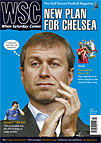 The complaints of the traditional media that the internet has lower standards is turning out to be a self-fulfilling prophecy, Ian Plenderleith discovers, as major organisations sully their brands
The complaints of the traditional media that the internet has lower standards is turning out to be a self-fulfilling prophecy, Ian Plenderleith discovers, as major organisations sully their brands
It’s well documented that the traditional print media were suspicious of this whole internet thing for years. Despite the worry that sub-standard but low-cost online journalism was going to take away all their readers, they were slow to respond to the ink-free new world, as though by competing they would taint themselves with product deemed to be a mediocre shadow of the revered printed word.
In the end, they decided it was better to be on the inside of the tent, blogging out, so to speak. The result has been that various media organisations have lowered their standards to the point where respected names stand above some unbelievably shoddy writing. Take Reuters, for example, the news agency that’s over 150 years old.
The Zenit v Rangers UEFA Cup final could turn out to be a high-scoring game, a blogger reasoned, because the previous ten finals had produced an average of 3.9 goals. So far, so brilliant, despite the fact that no previous final in any competition has ever been known to influence the outcome of a game that has yet to happen, while Rangers had been boring fans across Europe all year as they zeroed in on the final. On the other hand: “The omens for goals are not good, though – the only previous European final held in Manchester – the 2002-03 Champions League decider between Juventus and AC Milan at Old Trafford – finished scoreless after 120 minutes.” You might expect to find this kind of writing – with its misplaced dashes and lazy logic – on the outer reaches of the blogosphere, penned by a ten-year-old. But on Reuters?
And I know people who claim to be Daily Telegraph readers “because it’s good for sport”. Not necessarily on the net. One of the Telegraph’s football bloggers commented that he was against Iain Dowie’s appointment as QPR manager because “Dowie is surely among the ugliest men ever to play football, and just think how hard that is to achieve. Granted, Carlos Tevez has changed the ugly game entirely in recent years, but no one, not even Mrs Dowie, is going to accuse our new gaffer of being sexy.” Some blokey fan-blog might attract a reader or two with this kind of predictable flam, but a national paper?
Next up is Shaka Hislop’s weekly column at the Guardian about Major League Soccer, except that some weeks he doesn’t watch all the games, so he doesn’t have much to say, and other weeks he drifts off to talk about his amazing career, which at least limits the number of careless factual errors he makes about MLS. Worst of all, it’s plain dull, and you have to wonder if the handful of eulogies that habitually appear in the comments section are dutifully penned by his mates, or if the editors themselves bash out the compliments to make themselves look less incompetent in contracting such banal hackwork.
The mystery is what the Telegraph and the Guardian, especially, think publishing this kind of amateur prose is going to achieve. It can’t possibly lure in more readers and advertisers, but it certainly does drag down their reputations, while making readers feel like they’re wasting their time. Most of the best online sports journalism also appears in the print editions. Nothing wrong with that. Only, if you’re trying to pull your readers online, too, the extra value has to be something more dynamic than inane previews, reject cuttings from the lad-mag’s shithouse floor, or the screamingly obvious observations of an ex-pro with time on his hands.
It’s not a universal problem, by any means, but established media are often judged by their worst content, followed by the dreaded rhetorical question on when exactly they went to the dogs. Possible answer: the day they launched on the web with the starting premise that online readers must be stupid.
From WSC 257 July 2008